by Irma Havlicek
Powerhouse Museum Web Producer
Trowel tales and true – Nicola Harrington
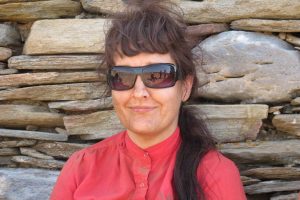
I sent a list of questions to our Zagora 2013 participants to get an idea of why they participated in Zagora 2013.
Here is the reply from Dr Nicola Harrington, Research Fellow, Department of Archaeology, University of Sydney:
Why did you want to work on Zagora?
I am a post-doctoral research fellow at the University of Sydney and am working with one of the Zagora directors, Dr Lesley Beaumont, on children and childhood in antiquity (with special reference to ancient Greece and Egypt). I wanted to work at Zagora in order to further familiarise myself with the archaeology of Greece as background to my research project, and to return to fieldwork after a decade’s hiatus. I also have the opportunity to visit local museums and those in Athens with collections that are directly relevant to my work.
What archaeological study and/or work have you done?
My background is Egyptian Archaeology/Egyptology, but I have worked as an archaeologist in Egypt, England and Ireland.
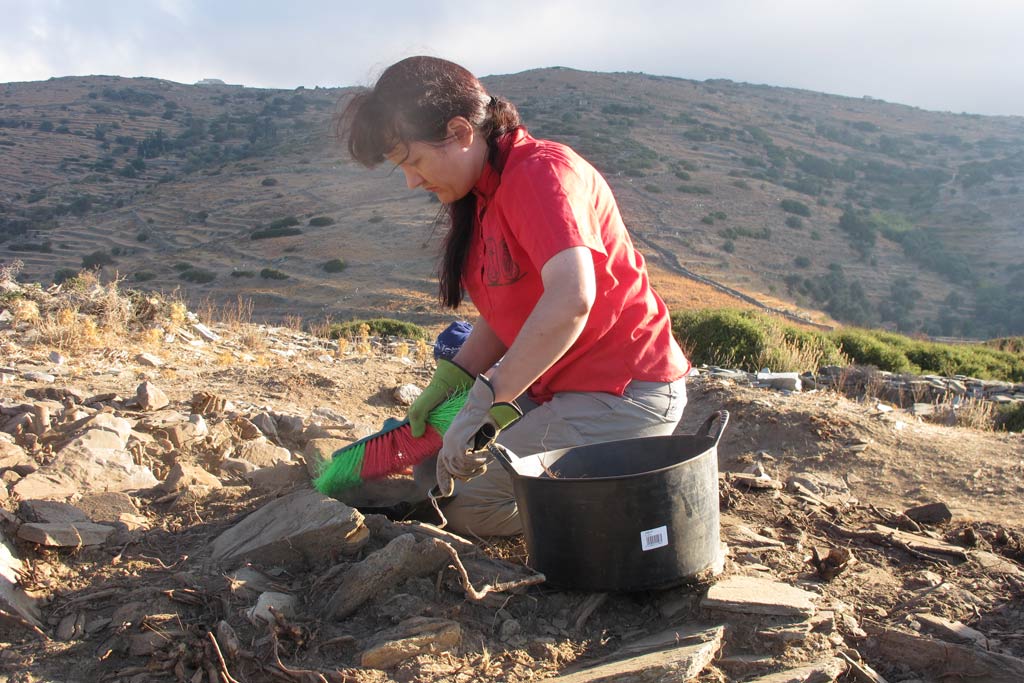
How do you earn a living?
As a researcher and lecturer: I particularly enjoy teaching and sharing my knowledge and understanding of ancient cultures with others.
How many archaeological excavations have you worked on before?
Eleven, including work as a supervisor on a training dig for Birkbeck College (University of London), employment with the Museum of London Archaeology Service, and three excavations in Egypt.
When did you develop your interest in archaeology?
When I visited Egypt for the first time, aged 11.
What inspires you about archaeology?
Archaeology offers a unique window on the past: along with texts it gives us a fascinating perspective into ancient civilisations. There is so much yet to be discovered and many gaps in our knowledge to be filled. I also enjoy the camaraderie of archaeologists: you have to be a little crazy to immerse yourself in fieldwork. As much as I like Indiana Jones films, the reality is far dirtier, more laborious and much less glamorous, but the thrill of discovery remains.
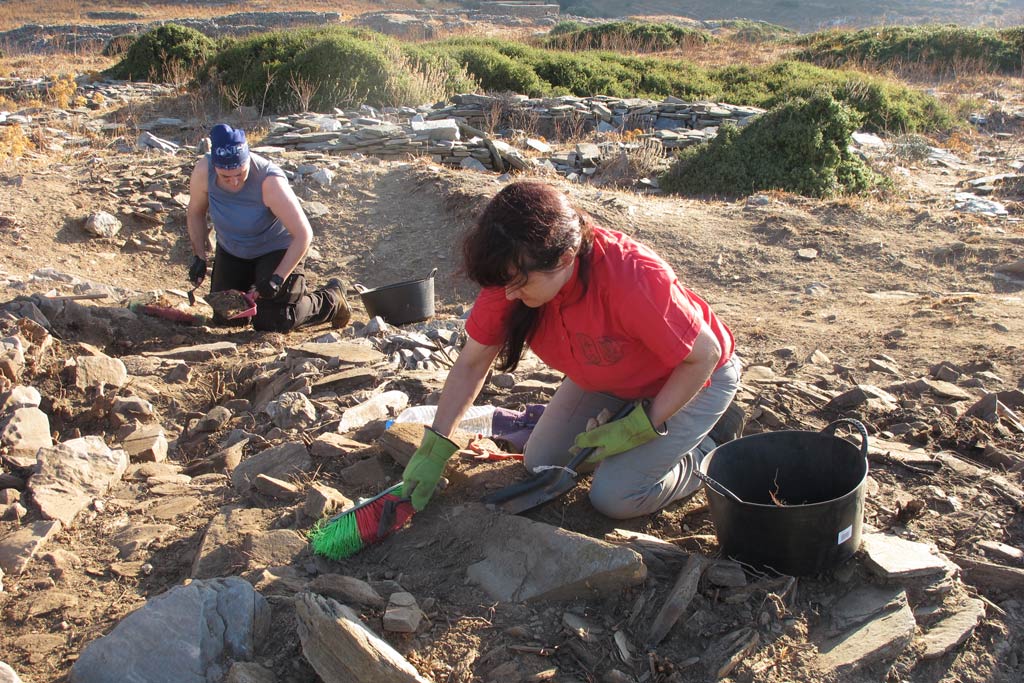
How does working at Zagora compare with other digs you have been on?
Being on an exposed promontory, it’s much windier than other sites, but the views are quite spectacular. The process of excavation is different too: working on collapsed stone buildings is something I’ve only otherwise encountered in Ireland, and reaching the levels where excavation (as opposed to rock-moving and brushing) can begin is labour-intensive. The walk to and from site is the other unusual feature: a 1.8 km hike across steep and rocky terrain.
How does the experience of working at Zagora compare to how you imagined it would be?
Two weeks into the field season I thought we would be down to occupation levels, but Mel’s trench was covered in a spiky bush called holm oak (also known as prinos) when we arrived and removing it along with its extensive root systems slowed progress.
Did you bring your own trowel to Zagora? How long have you had it/how many digs have you used it on?
Not exactly: I was unable to find my trowel, which I obtained on my first excavation at the Roman site of Verulamium in St. Albans, England. The trowel I brought with me is still drop-forged, but is from a UK hardware store and has been used for plastering.
What would you say to others who may be considering volunteering to work on an archaeological excavation?
Do it. You will meet interesting people, learn new skills and help contribute to our understanding of past cultures.
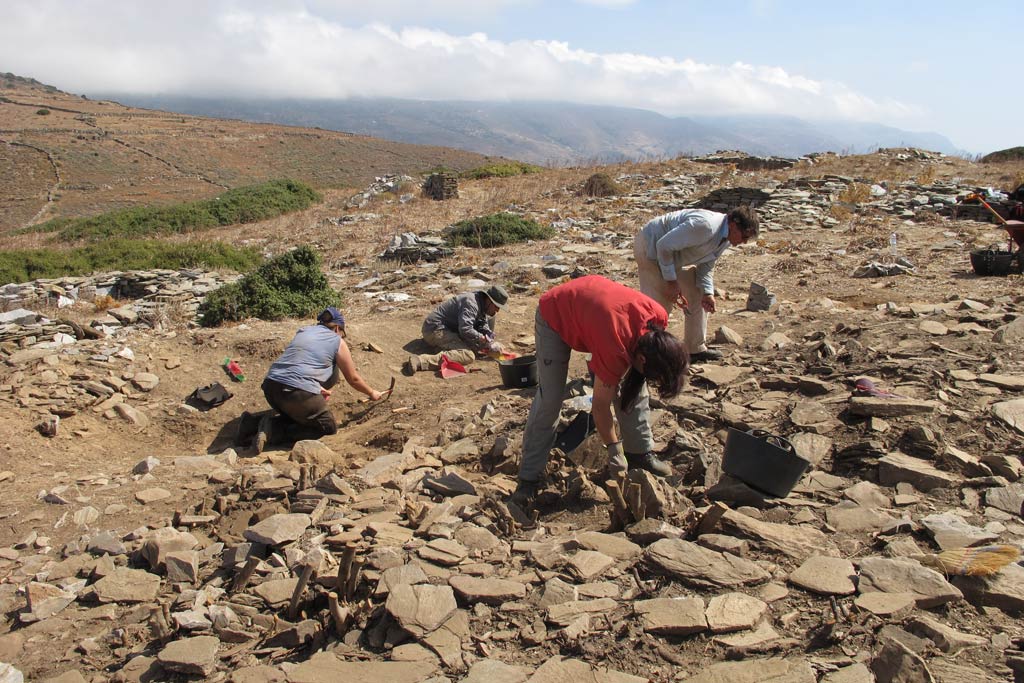
Other profiles of archaeologists and Zagora 2013 participants
If you are interested in other profiles of archaeologists, check out our Archaeologists Q&A. Also, more profiles of Zagora 2013 participants will be added to this blog over the next month or two.
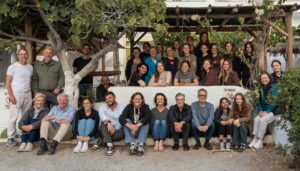
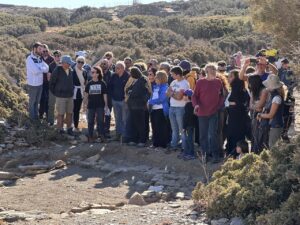
2 thoughts on “Nicola Harrington – Egyptologist and Zagora 2013 volunteer”
This is a fascinating post and really brings the people on your team to life. I really admire the dedication of your workers – with academic job opportunities being so limited and the pay for them so poor it must be a struggle for all workers in your area, but you seem to have a really good esprit de corps. I suppose dinner at the Kandouni every night helps! Good luck you you all.
Thanks, Malcolm, for your comment. Yes there is a fantastic spirit among the team of all working together towards the same goal – to understand better the people of Zagora – how they lived, what they ate, what they made, and why they left. It’s a fascinating process. And yes, certainly, our home-away-from-home at the Kantouni with its cosiness, great hearty food made by Maria, and the care of Giorgos and Alexandra, makes a return from the dig very welcome indeed. Thanks for your kind wishes – which I will pass on. Cheers!